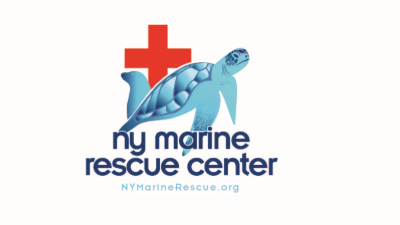Rehabilitated Loggerhead Sea Turtle Pegasus Set for Release with Satellite Tracking

Summary
Full Article
The New York Marine Rescue Center will release an adult loggerhead sea turtle named Pegasus at Tiana Beach on Tuesday, September 23rd, following successful rehabilitation from injuries sustained from a suspected vessel strike. The turtle was originally reported stranded on June 4, 2024, at Assateague National Park in Maryland and received initial treatment at the National Aquarium in Baltimore before being transferred to NYMRC in May 2025 for continued care.
Pegasus was experiencing buoyancy issues when first rescued, requiring specialized weights during rehabilitation to help overcome floating challenges and regain muscle strength. The transfer to NYMRC became necessary as the turtle needed a larger tank to better monitor her swimming abilities and buoyancy progress. The collaborative effort between the two organizations demonstrates the importance of inter-institutional cooperation in marine animal rehabilitation, showing how specialized facilities can work together to provide optimal care for injured wildlife.
Before her release, NYMRC Executive Director Maxine Montello will equip Pegasus with a satellite tag to track her post-release movements. This tracking will provide valuable data on the behavior and movement patterns of rehabilitated sea turtles, offering insights into their long-term survival prospects after returning to the wild. The information gathered will contribute to broader conservation efforts and help researchers understand the challenges faced by marine animals following rehabilitation, potentially improving future treatment protocols for stranded marine life.
The release represents a significant milestone in marine conservation efforts, highlighting the success of rehabilitation programs for endangered species. Loggerhead sea turtles are listed as threatened under the Endangered Species Act, making each successful rehabilitation and release particularly important for population conservation. The satellite tagging component adds a research dimension that extends beyond the immediate success of the release itself, creating opportunities for ongoing scientific contribution from a single animal's recovery story.
This event underscores the ongoing mission of organizations like the New York Marine Rescue Center to rescue, rehabilitate, and release marine animals while supporting conservation research. The data collected from Pegasus's satellite tag will help inform future rehabilitation protocols and contribute to the scientific understanding of sea turtle behavior in the wild following medical intervention. This approach represents a model for how wildlife rehabilitation can simultaneously address individual animal welfare while advancing broader conservation science goals.

This story is based on an article that was registered on the blockchain. The original source content used for this article is located at citybiz


